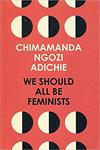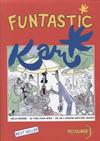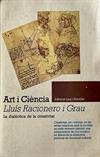
Dune Chronicles, Book 4 - God Emperor of Dune (Acrobat Reader pdf)
3 journalers for this copy...
This is an E-Book. I will put on a disk and mail out.
Mailed on a disk today along with 7 other books.
This is my favorite book (together with Davita's Harp and A prayer for Owen Meany). When there was a poll of which Dune books were people's favorites at http://www.houseatreides.com/ , Dune was significantly more popular than GEoD. (No, I didn't actually calculate the level of significance.) I didn't really stop to think why I prefer GEoD, though. But then, as I was thinking what to say about GEoD, all of a sudden I realised a new reason why I liked it better than Dune (another reason why I love Bookcrossing: making journal entries is a very good way of finding out what you thought of a book). First of all, I have always liked the use of language in GEoD more. And I never liked the end of D much. But now I realised that this lack of ending goes deeper: D was originally planned as one novel which turned into a trilogy. And while the increase in scope from a story about the messianic tendency to an epic of the interactions between ecology, government, leadership, science and religion has certainly made D into a novel that raised the standard of science fiction writing to the level of literature, the splitting of the original storyline across three books shows in the strained quality of, especially, Dune Messiah. GEoD, by contrast, is whole. Although it profits from what has come before and follows, it describes the lonely struggle of a single individual who is both empowered and helpless, both by a combination of unique and very ordinary abilities, and by a mandate to save a thankless humanity. Like many great novels, it brings this out by exaggerating in an internally consistent way, and I think that this is nothing short of genius in using what FH liked to call the 'elbow room' in science fiction.
I have read this book at least 10 times from cover to cover, and I often dip into it to refresh my memory on a certain point, and often come out feeling richer. To facilitate this dipping, I typed out the whole book a few years ago, to be able to search through it, but then I lost it again through a mistake in a backup, which I didn't notice until after I had remigrated. So I am very thankful to tyvmdear to have another electronic, searchable, copy, and of the other pre/sequels as well.
I have read this book at least 10 times from cover to cover, and I often dip into it to refresh my memory on a certain point, and often come out feeling richer. To facilitate this dipping, I typed out the whole book a few years ago, to be able to search through it, but then I lost it again through a mistake in a backup, which I didn't notice until after I had remigrated. So I am very thankful to tyvmdear to have another electronic, searchable, copy, and of the other pre/sequels as well.
An analysis of the hydrolic despotism in GEoD:
Leto sees that there is a dam in human affairs that threatens the survival of humankind. Paul also saw this dam, and tried to break it down, and failed. Leto understands that the problem is that while society as a whole "sees" that dam and tries to break it down, most individuals don't see the dam, and (I think he's saying for reasons that fit our tribal past) resist attempts to break it down. So instead Leto makes the dam higher. This creates a societal urge to break it down, which he counters and frustrates. This sets up a selection pressure for ability to break down the dam. So the pressure builds and builds, as Leto reinforces his dam, until the pressure is high enough to ensure human survival. Then Leto releases the dam.
Now comes the important bit. I think this dam is not a fictional construct. Yes, it's a metaphore, and maybe a poor one, but still it's really there. It's threatening our survival, and it's time we took it down.
Leto sees that there is a dam in human affairs that threatens the survival of humankind. Paul also saw this dam, and tried to break it down, and failed. Leto understands that the problem is that while society as a whole "sees" that dam and tries to break it down, most individuals don't see the dam, and (I think he's saying for reasons that fit our tribal past) resist attempts to break it down. So instead Leto makes the dam higher. This creates a societal urge to break it down, which he counters and frustrates. This sets up a selection pressure for ability to break down the dam. So the pressure builds and builds, as Leto reinforces his dam, until the pressure is high enough to ensure human survival. Then Leto releases the dam.
Now comes the important bit. I think this dam is not a fictional construct. Yes, it's a metaphore, and maybe a poor one, but still it's really there. It's threatening our survival, and it's time we took it down.











